Cognitive Development Subtraction Worksheets for Ages 6-7
5 filtered results
-
From - To
Enhance your child's cognitive development with our engaging Subtraction Worksheets designed for children ages 6-7. These worksheets aim to build essential math skills while fostering critical thinking and problem-solving abilities. Each worksheet is creatively crafted to make learning subtraction fun and interactive. Your child will learn to subtract numbers through helpful visuals and relatable scenarios, promoting a deeper understanding of mathematical concepts. Ideal for both classroom and home learning, our worksheets support early learners in developing their subtraction skills at their own pace. Equip your young mathematician with the tools they need for a successful educational journey!
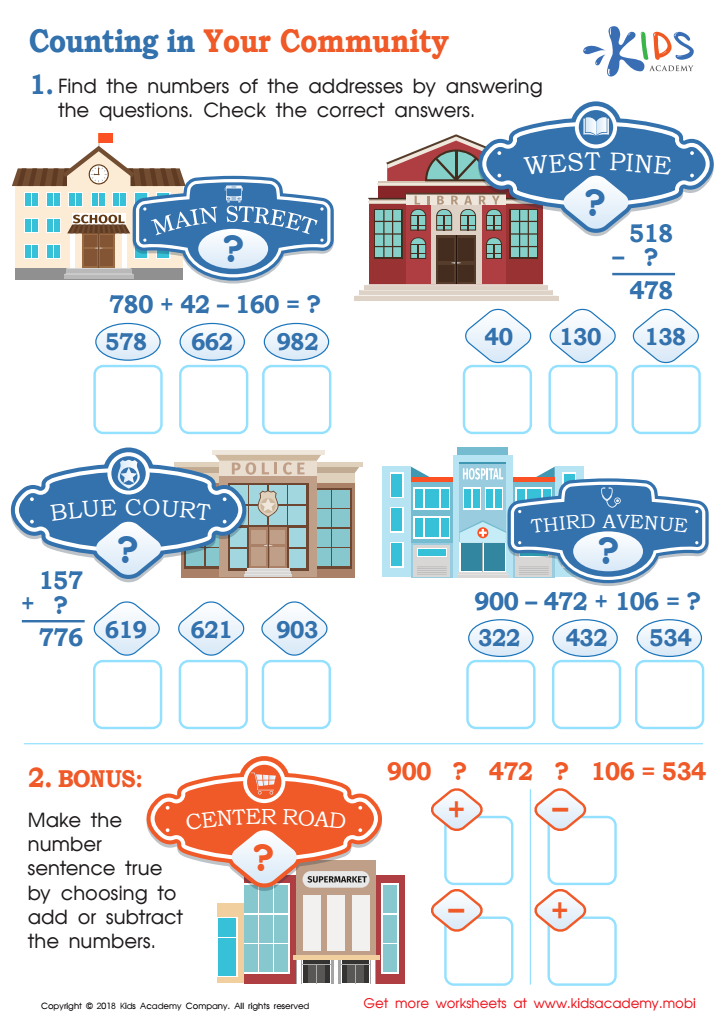

Counting in Your Community Worksheet
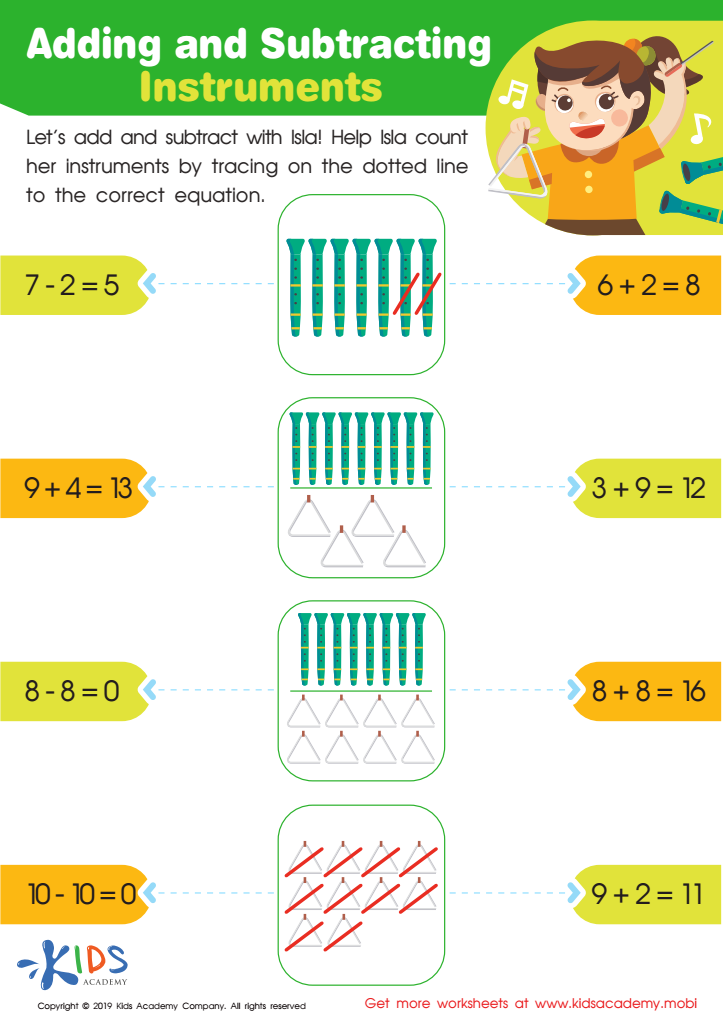

Adding and Subtracting: Instruments Worksheet
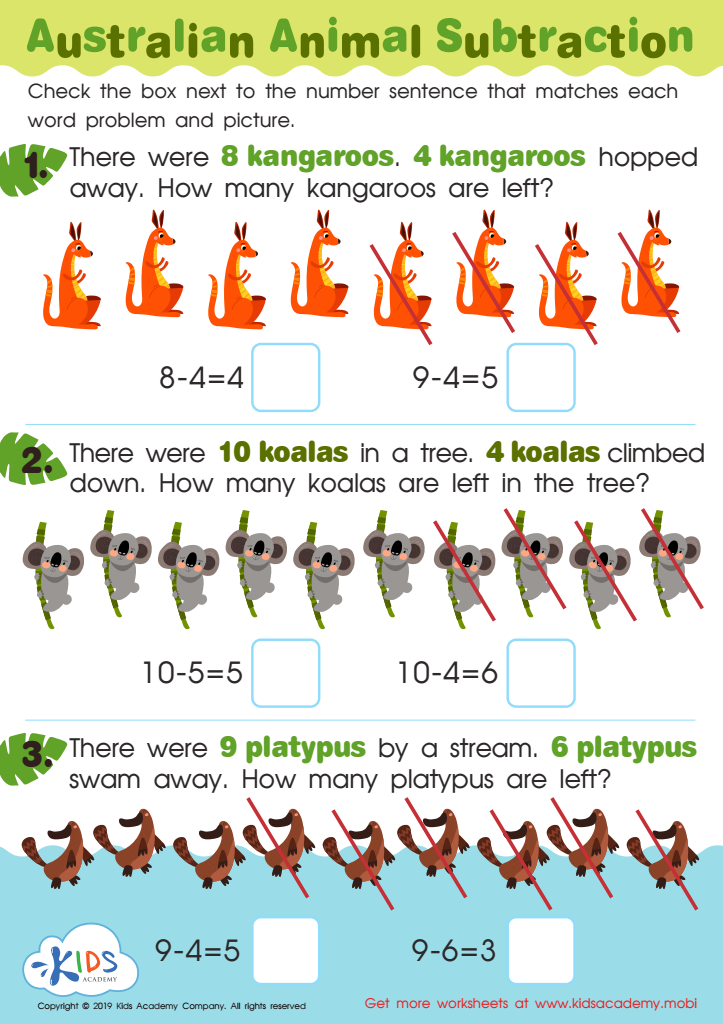

Australian Animal Subtraction Worksheet
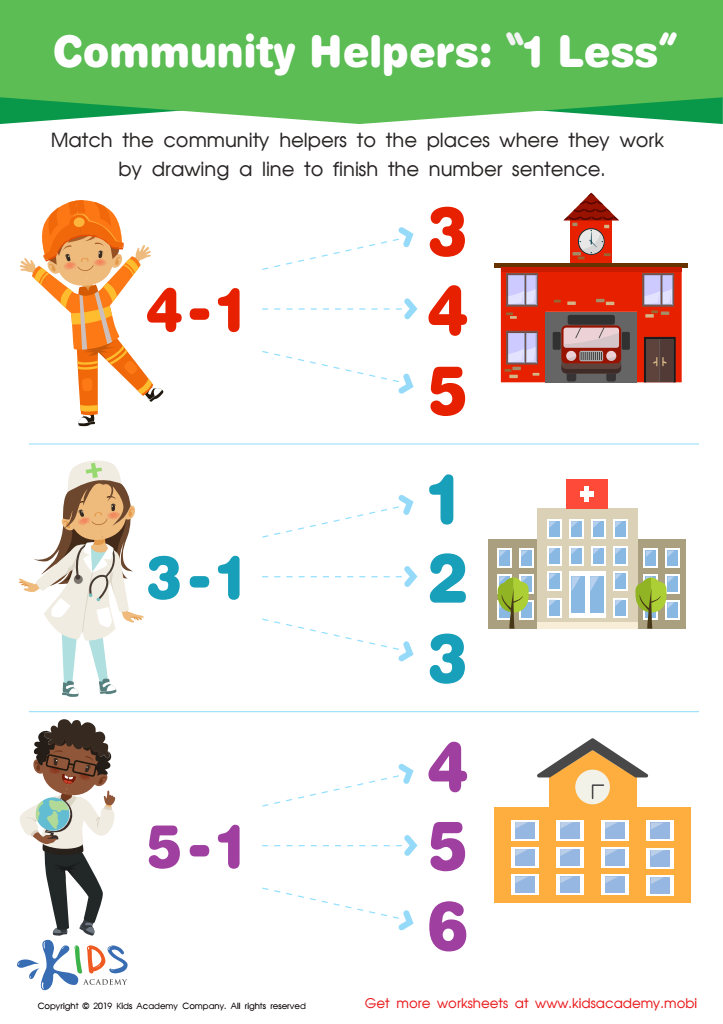

Community Helpers: 1 less Worksheet
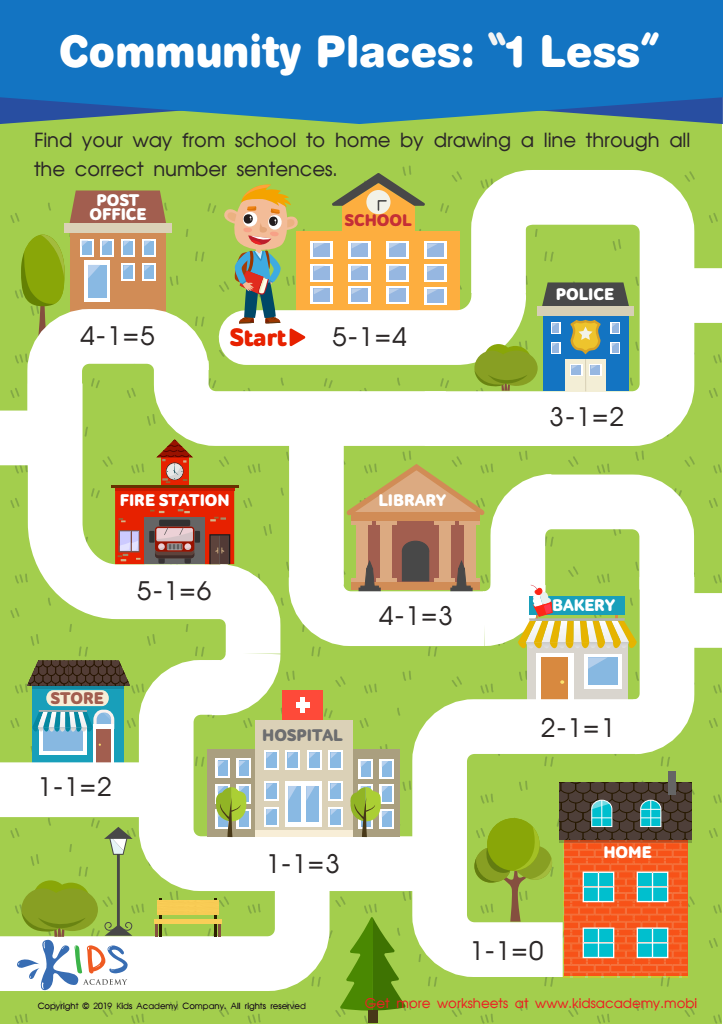

Community Places: 1 Less Worksheet
Cognitive development in children aged 6-7 is crucial as it lays the foundation for their future learning and problem-solving abilities. Subtraction is one of the fundamental concepts in early mathematics, and mastering it can significantly influence a child's overall academic success.
Understanding subtraction helps children develop reasoning and critical thinking skills. It teaches them to grasp the idea of taking away, which is essential for comprehension of more complex mathematical concepts and operations. Subtraction also enhances their ability to make comparisons, recognize patterns, and engage in logical thinking, all of which are vital cognitive skills.
Furthermore, subtraction exercises promote perseverance and resilience. As children encounter and solve challenging problems, they learn to think analytically and approach tasks methodically, fostering a growth mindset. For parents and teachers, supporting this cognitive development is an opportunity to encourage a child’s confidence and initiative in learning.
By actively engaging in subtraction activities—whether through games, real-life scenarios, or interactive lessons—we can nurture not only their mathematical prowess but also their overall cognitive abilities, setting the stage for lifelong learning success. Engaging with subtraction meaningfully can inspire curiosity and a passion for learning that goes beyond mathematics.
 Assign to My Students
Assign to My Students





















